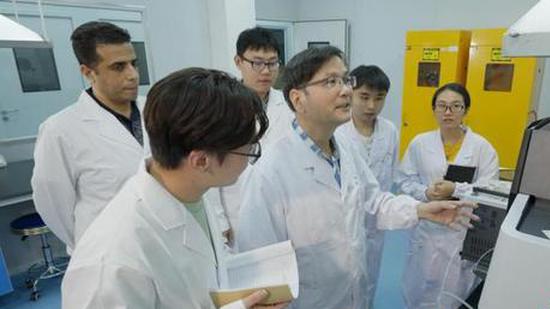Chinese scientists extract radionuclides for malignant tumor treatment
(ECNS) -- A research team led by Professor Wei Yuezhou from the University of South China (USC) has successfully extracted high-purity medical isotopes lead-212 and bismuth-212 from the rare earth mineral monazite, advancing the treatment of malignant tumors, USC announced on Wednesday.
Building on China’s abundant thorium resources, including monazite, Wei's team has been studying the separation and extraction of lead-212 and bismuth-212 from thorium nitrate obtained from monazite since 2022.
The team developed a new adsorbent material capable of efficiently and rapidly extracting radionuclides. The research results provide new ideas for solving the current global shortage of lead-212 and bismuth-212.
Lead-212 and bismuth-212 are among the most promising radionuclides for targeted alpha therapy, a treatment for malignant tumors such as breast, pancreatic, and prostate cancer. However, current extraction methods are complex, yield low outputs, and are costly—barriers that hinder the wider development of targeted drugs.
Wei noted that his team is also working to extract additional nuclides, including radium-228, thorium-228, and radium-224, from monazite to further support the application of alpha nuclide therapy.
The team has secured patents for their findings, with some results published in prominent international journals, including Chemical Engineering Journal and Journal of Radioanalytical and Nuclear Chemistry.

